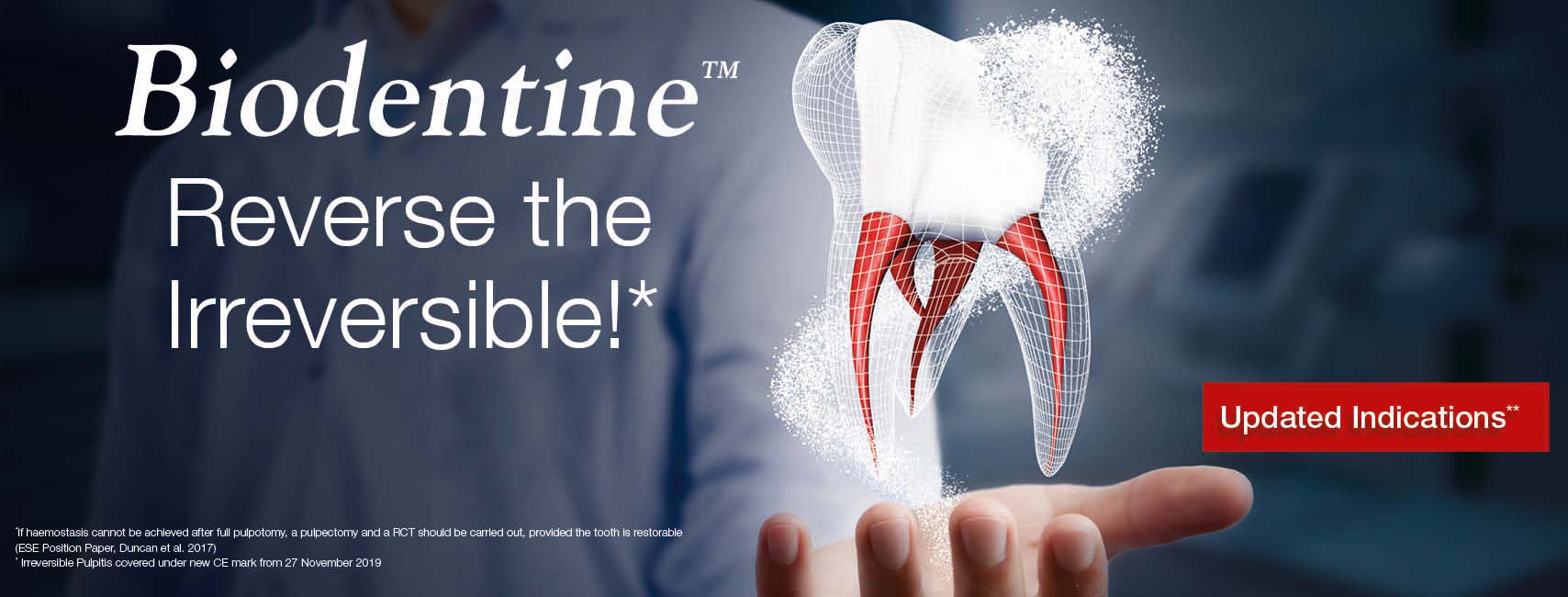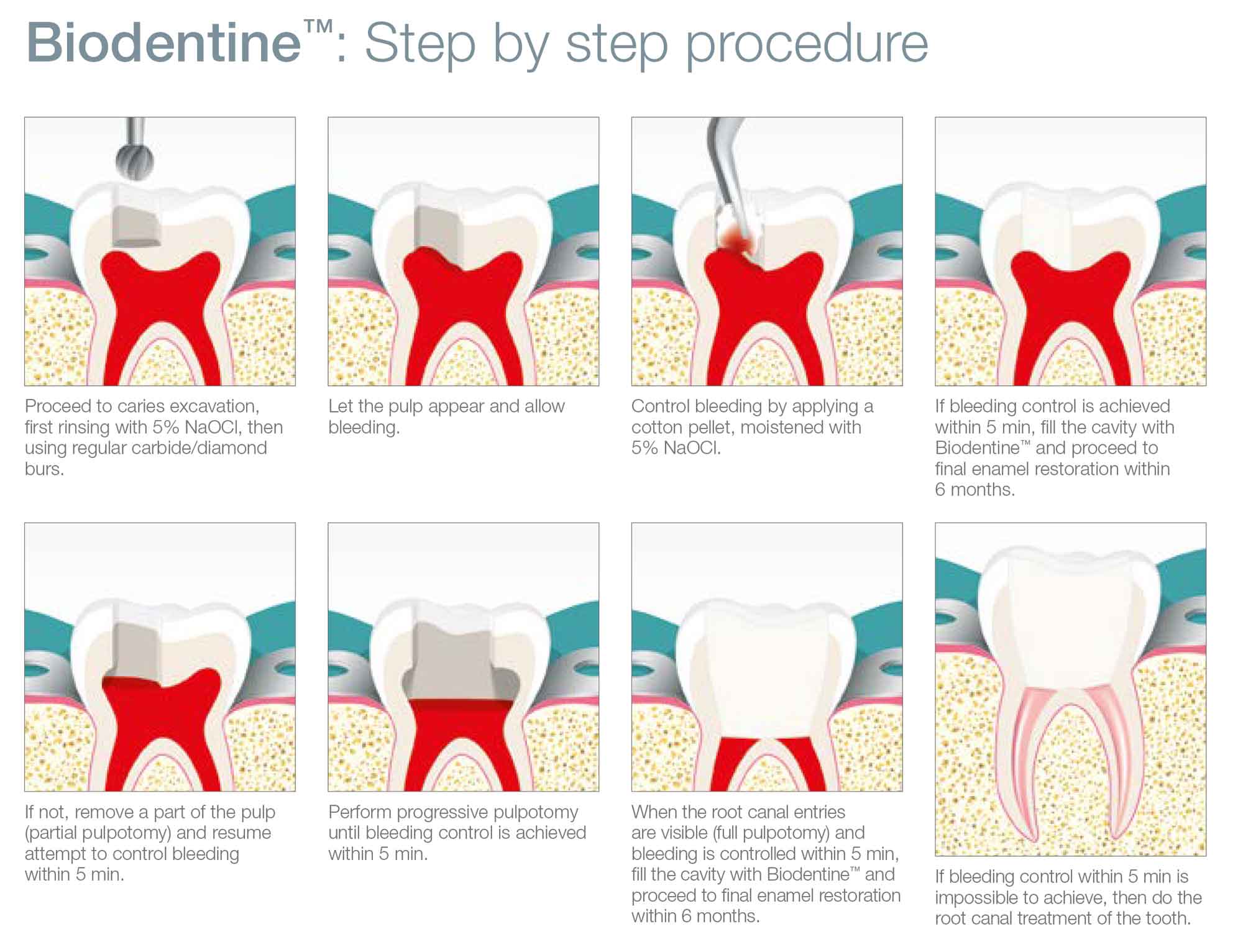 Septodont explains how its Biodentine has now become a must-have product for patients showing signs of irreversible pulpitis.
Septodont explains how its Biodentine has now become a must-have product for patients showing signs of irreversible pulpitis.
Launched by Septodont nearly 10 years ago, Biodentine is a must-have product when it comes to vital pulp therapy and the treatment of deep caries.
Acknowledged by more than 800 publications worldwide, Biodentine has saved millions of teeth around the globe. Now, Biodentine opens a new door for teeth showing signs of irreversible pulpitis. A condition that until now was dooming the tooth to root canal treatment.
Following the ESE (European Society of Endodontology) position statement for managing exposed pulp; supported by three clinical studies run over the past three years showing 95% clinical success, and validated by Septodont’s notified body, Biodentine can now also be used even for teeth showing signs and symptoms of irreversible pulpitis. As long as the clinician can achieve haemostasis within five minutes.
This could represent not less than 85%* of all cases.
Thanks to its one-of-a-kind properties, dentists can extend vital pulp therapy using Biodentine to irreversible pulpitis conditions. This therefore allows complete dentine bridge formation.
The treatment is minimally invasive to preserve as much tooth structure as possible. It immediately relieves the patient from the pain associated with the inflammation.
The bio ‘bulk-fill’ procedure of Biodentine also allows the practitioner to use only one material to fill the cavity, making it easier to use.
European Society of Endodontology clinical directions – managing carious pulp exposure
- For class II capping of deep carious lesions use an enhanced protocol; including magnification, a disinfection irrigant and the application of a hydraulic calcium silicate cement
- Carious exposure with symptoms indicative of irreversible pulpitis, with no rubber dam being used and instruments contaminated during caries removal, should be treated aseptically with pulpectomy
- Alternatively, full pulpotomy is successful using an aseptic technique in cases where there is partial irreversible pulpitis in the coronal pulp.

Septodont’s proprietary breakthrough Active BioSilicate Technology ensures high biocompatibility alongside bioactive and regenerative properties.
The high purity tricalcium silicate means no shrinkage and an absence of aluminates and calcium sulphates.
With its restorative, paediatric and endodontic qualities, Biodentine isn’t just for ‘special’ cases. It’s a superior, quality product with amazing capabilities that clinicians should use in everyday cases with damaged dentine.
This video, by Nicola Bone of The Natural Smile Dental Practice in Bristol, shows exactly how she uses Biodentine in a large MOL cavity.
For more information visit www.septodont.co.uk.
*If you cannot achieve haemostasis after full pulpotomy, carry out a pulpectomy and an RCT. If the tooth is restorable (ESE Position Paper, Duncan et al, 2017).


